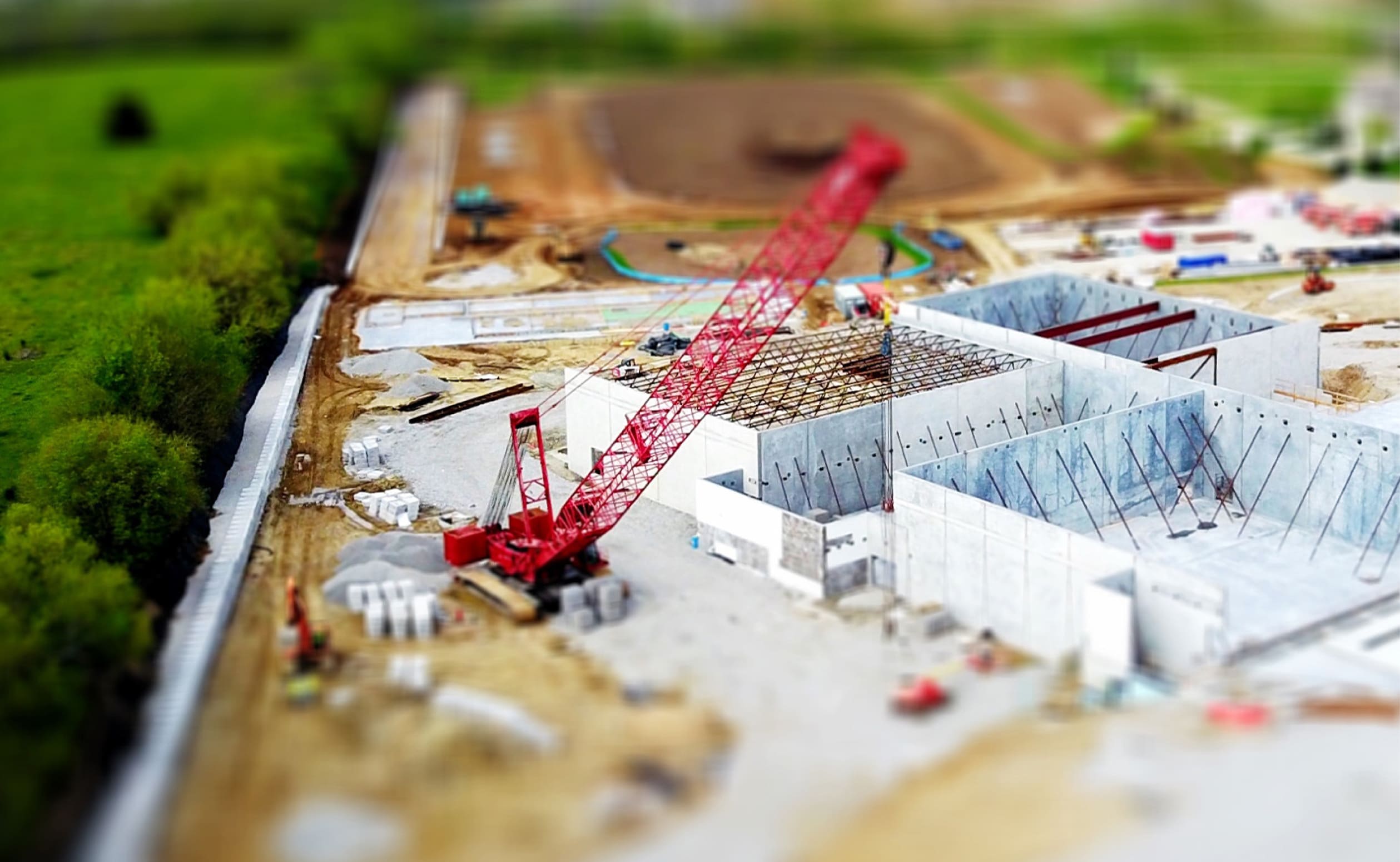2023 signals the opportunity to make fresh resolutions and put new competitive tactics into action. General contractors and subcontractors must consider their own ambitions and limitations as well as those that affect the sector as a whole when deciding on the main results and targets for the upcoming year. The following issues will be of particular importance to construction companies in 2023:
Lowering carbon emissions
The building and construction sector is responsible for 36% of global final energy consumption and 39% of energy- and process-related carbon dioxide (CO2) emissions, according to the International Energy Agency (IEA). Therefore, the building industry has a crucial role to play in resolving the climate emergency and achieving the shared goal established by the Paris Agreement of reducing fossil fuel usage by 40% by 2030. A primary target for 2023 is reducing the carbon footprint of the construction industry, from energy-efficient buildings to net zero job sites.
Many steps may be made to make the industry greener and more sustainable, such as purchasing electric or hydrogen-powered heavy equipment and vehicles, as well as environmentally friendly building supplies like low-carbon cement. Using a digital site management solution is another way to save emissions because it not only eliminates paper but also enables teams to cut back on trips between the office and the site. A construction management system will also cut down on waste and increase jobsite efficiency, lowering production costs and carbon emissions.
Preventing accidents & lowering exposure to risk
Construction companies always place a high focus on worker safety, but there is always much room for improvement. The United States had 5,190 fatal work injuries in 2021, according to the U.S. Bureau of Labor Statistics. The transportation and material moving sectors accounted for 1,523 of the total deaths, and the construction and extraction occupations had a total of 951 fatal work injuries. 370 of the 951 fatalities were caused by falls, slips, or trips.
A significant problem for construction organizations continues to be enhancing current preventative techniques and implementing new ones. Maintaining your teams’ familiarity with the most recent regulations is crucial, as is conducting safety checks. By identifying dangers and lowering risk before work even starts, good safety documentation not only protects contractors from potential legal action but also enhances jobsite safety.
With fewer days missed due to accidents, investing in safety will have a significant impact on employees’ performance as well as their health and well-being.
Continuing Education
We’ve said it before: educating your teams about new technologies and skill sets results in meeting deadlines, reducing wear and tear on equipment, saving fuel and money and keeping your teams safe.
The construction business is continually changing due to the development of new technology and processes as well as shifting regulatory restrictions. Lifelong learning is more than a nice-to-have; it’s crucial for construction teams to maintain high safety standards, be compliant with laws, and increase productivity. It also serves as a means of bridging the knowledge gap between new hires who are still learning best practices’ and seasoned workers who may not be familiar with new technologies and applications. Investment in lifelong learning is therefore a strategy to maintain competitiveness and provide the best results for clients.
Digital Forward Thinking
Digitalization, one of the five main subjects covered at BAUMA 2022, will remain a significant concern for contractors in 2023. 40% of construction companies worldwide, according to a research from the Royal Institute of Chartered Surveyors (RICS) published in 2022, do not use digital technologies on any of their projects. Digital solutions can assist streamline operations, facilitate communication and task coordination, track performance, and decrease risk, all of which can save money, time, and resources. As a result, many opportunities are lost. Seven out of ten businesses that RICS surveyed concur that implementing new technology has enhanced their procedures and methods for cost estimation, projection, planning, and control.
Even starting with just one digital tool can have a significant impact. For instance, a construction management software can offer substantial advantages including greater productivity, more teamwork, improved accuracy, and cost savings. Additionally, it greatly facilitates job management, plan viewing and inspections, and greatly increases productivity for reports, snag lists, and RFIs.
Despite the obvious benefits of digitization in construction, some opposition still exists. The RICS report cited “cost and effort to make changes” and a “shortage of skilled persons” as the key obstacles to adopting digitalization. a warning indicator indicating “there is a problem with the realization of improvements, as is true of many change initiatives.” Construction teams may swiftly adapt to changes in procedure and practice by using an intuitive digital solution like Aimsio, and they can soon realize the advantages of digitizing jobsite administration.
So what can you do right now?
Aimsio is committed to keeping up with the latest construction trends. As the industry focuses on lowering carbon emissions, preventing accidents, promoting continuing education, and embracing digitalization, Aimsio offers solutions that address these key issues. By implementing Aimsio’s digital site management solution, construction companies can reduce their carbon footprint, increase jobsite efficiency, and lower production costs. Additionally, Aimsio’s safety documentation features help enhance jobsite safety and prevent accidents, ultimately improving employee performance and well-being. Aimsio recognizes the importance of lifelong learning in the construction industry and supports it by providing tools and resources for staying up to date with new technologies and regulations.
With a digital-forward approach, Aimsio enables contractors to streamline operations, improve communication and coordination, track performance, and save time and resources. To learn more about how Aimsio can help construction companies embrace these trends and achieve their goals, we encourage you to a book a demo with us today.




